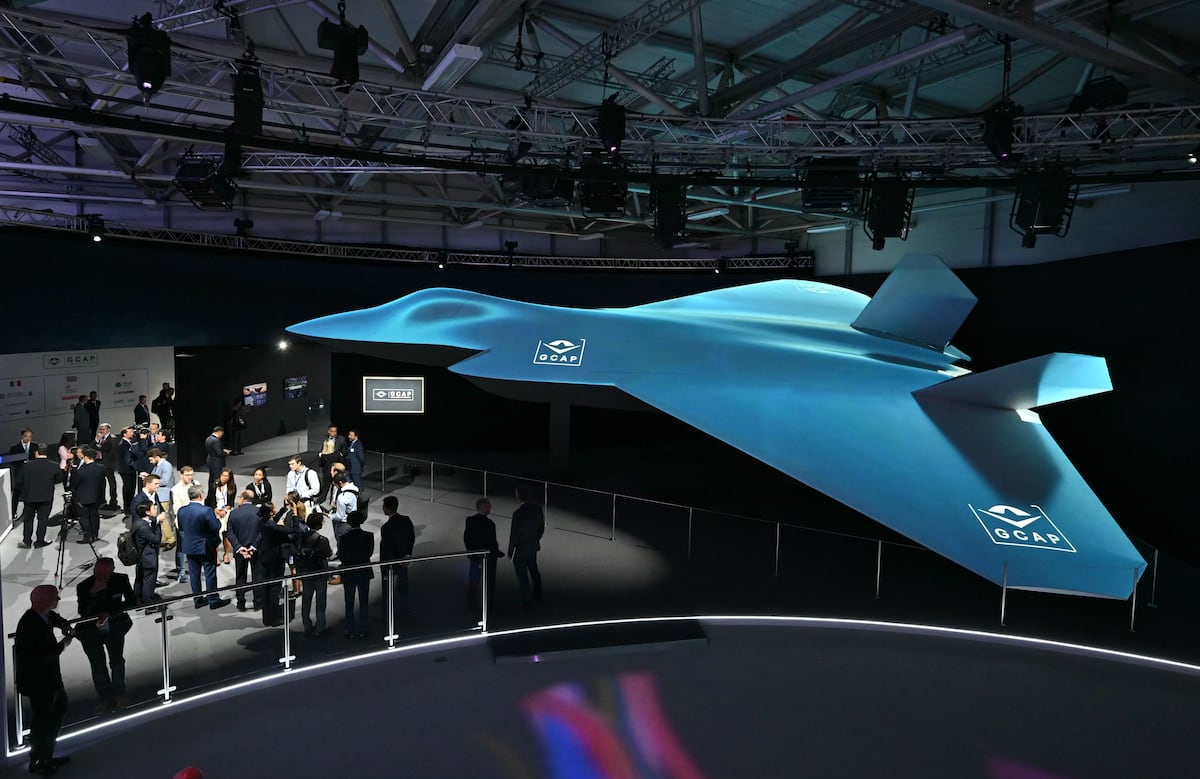Key Takeaways
- Japan’s defense minister meets U.K. counterpart to discuss a joint fighter jet program with Italy.
- The program aims to develop next-generation fighter jets set to enter service by 2035.
- Political challenges and financial uncertainties may affect Japan’s commitment to the project.
Joint Fighter Jet Development Program Overview
Last week, defense ministers from Japan and the United Kingdom convened to advance a joint fighter jet development initiative involving Italy. This meeting took place as Gen Nakatani, Japan’s defense minister, toured the U.K., which included discussions on the Global Combat Air Programme (GCAP) and a visit to the newly established headquarters for the initiative in Reading, about 36 miles west of London. The U.K. Secretary of State for Defense, John Healy, highlighted significant progress in the program, emphasizing the enhanced security cooperation among the participating nations.
The fighter jets developed under this initiative are projected to enter service in 2035, coinciding with Japan’s planned retirement of roughly 100 F-2 aircraft. The participating countries aim to finalize logistical details, such as work distribution, cost sharing, and technology transfers, during their discussions in Reading. As per Sadamasa Oue, a senior fellow at the Asia Pacific Initiative, negotiations will be challenging as countries seek to maximize work share while minimizing financial obligations.
In the U.K., the GCAP has garnered substantial public and government attention. The program’s approval from Prime Minister Keir Starmer alleviated concerns following scrutiny of the two billion-pound ($2.4 billion) initial funding. Officials stressed the need for efficient financial management to avoid the pitfalls of previous defense projects plagued by delays and budget overruns.
Conversely, Japan exhibits a quieter stance, as outlined by James Angelus, President of the International Security Industry Council. There has been little public discourse about GCAP in Japan, with local officials preferring to limit engagement until they can present a compelling narrative of success. Despite ongoing efforts to raise awareness, significant apprehension remains regarding the program’s visibility and involvement.
The GCAP is critical for Japan, marking its most significant defense project as the country redefines its military policy post-2014. The program is expected to invigorate a stagnant Japanese defense industry, which has often faced public skepticism and calls for disbandment. Following the signing of the GCAP treaty in 2022, Japan committed to substantial investments for research and development over the next five years.
Set against this backdrop, political dynamics in Japan complicate the project’s future. Critics warn that increasing defense capabilities could lead Japan towards becoming an arms exporter. The ruling Liberal Democratic Party’s recent electoral challenges have put additional pressure on the government to navigate this sensitive terrain. Experts believe that the current political landscape might hinder necessary regulatory changes that could facilitate the program’s full realization.
Moreover, international relations, particularly with the United States, play a pivotal role in GCAP’s success. The potential return of Donald Trump to the presidency has raised concerns among analysts about the implications for Japan’s defense strategy. Unlike the more alliance-oriented Biden administration, Trump’s prior transactional nature could complicate relations, especially regarding defense procurement.
To maintain momentum in the GCAP initiative, experts suggest that Japan must effectively communicate its operational progress to the public and potential partners. Active engagement and transparency could cultivate support and promote cooperation, especially in light of geopolitical uncertainties, including threats from North Korea and China’s assertiveness. As discussions progress, Japan’s commitment to implementing GCAP remains closely linked to both domestic political stability and international diplomacy.
The content above is a summary. For more details, see the source article.















